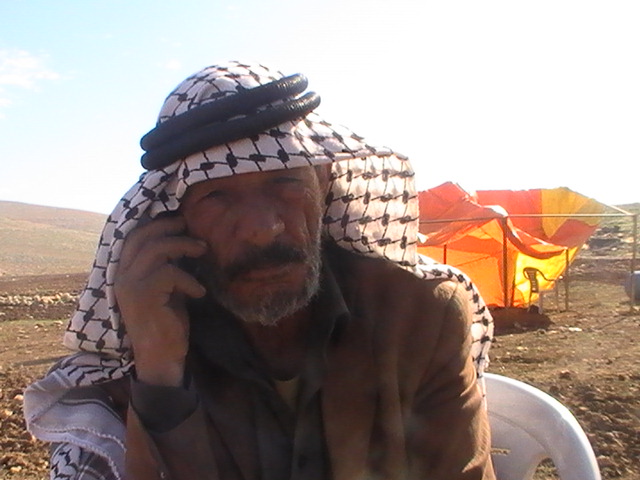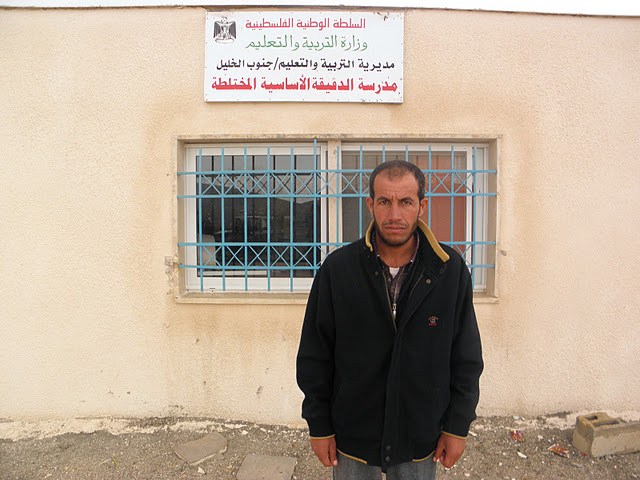Tag: Bedouin
-
Khan Al-Ahmar: Forced expulsion of Bedouins from Area C
by Alistair George 13 December 2011 | International Solidarity Movement, West Bank “From the 1970’s until today, the Israelis used to demolish our tents and houses but not to deport us” says Abu Hamis, a member of the Jahalin Bedouin tribe . “We used to rebuild our places but the new policy which they are…
-
Jordan Valley: threat of imminent demolition hangs over the village of Al Hadidiya
by Ben Lorber 7 December 2011 | International Solidarity Movement, West Bank Before the 1967 Israeli occupation of the West Bank, Al Hadidiya, near the Jordan Valley villages of Tubas and Jiftlik, was inhabited by over 100 families. Today, only 14 families remain. Since 1967, the village has been demolished four times, and over 3000 dunums…
-
Dkaika: Israel continues to expel Bedouins
by Aida Gerard 23 November 2011 | International Solidarity Movement, West Bank The entire Bedouin village of Dkaika encounters demolitions, and all the villagers face expulsion. Every single construction of Dkaika has a demolition order totally over 75 demolition orders including a mosque, a school, a graveyard, water cisterns, housing tents, and folds for sheep.…


